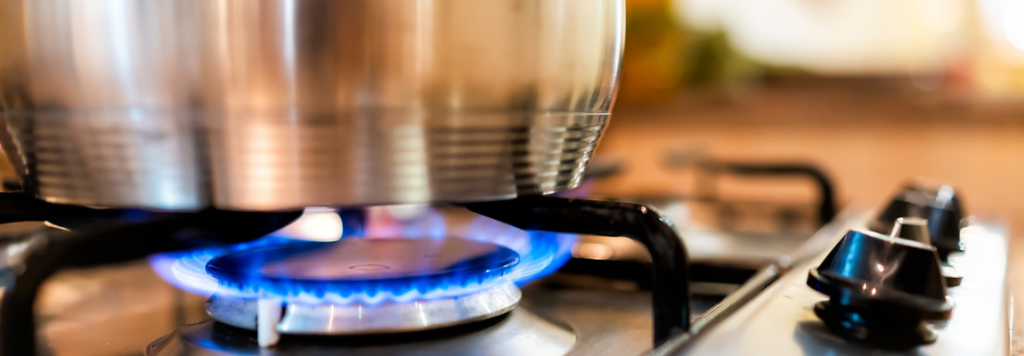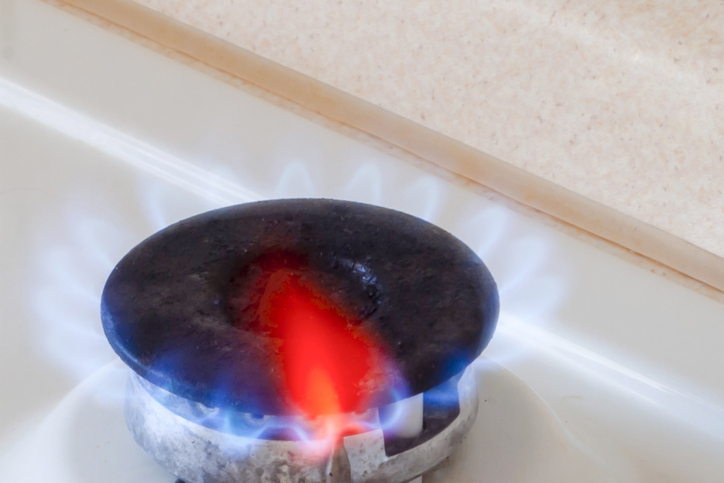Home » Residential » Tenant Guides » Gas Safety
Gas Safety Guide for Tenants

Your landlord is responsible for ensuring the safety of the gas appliances in your home, you are also responsible for making sure you use the appliances correctly and are aware of potential faults and take the appropriate action.
Gas appliances working incorrectly can cause death so it’s very important to read and follow this guidance.
Understand Your Rights and Responsibilities
- Landlord’s Duties: Your landlord is legally required to ensure gas appliances, fittings, chimneys, and flues are safe and well-maintained.
- Annual Safety Check: Landlords must arrange for a Gas Safe registered engineer to conduct an annual gas safety check on every gas appliance and flue.
- Gas Safety Record: After the check, your landlord must provide you with a Gas Safety Certificate within 28 days of the inspection or before you move in.
Recognize the Signs of Gas Appliance Issues
The two main causes for harm caused by gas appliances are fire/explosion or carbon monoxide poisoning.
Explosions are caused by gas leaks which can be detected by the smell of gas which is often described as rotten eggs or Sulphur.
Carbon monoxide (CO) is a dangerous, odorless, colorless, and tasteless gas that can be produced by gas appliances in your home if they are not functioning correctly or are improperly ventilated. It’s often referred to as a “silent killer” because it is hard to detect without a carbon monoxide detector.
- Gas Leak: Smell of rotten eggs or sulphur.
- Faulty Appliance Signs: Yellow or orange flames instead of blue, soot or staining around the appliance, and excess condensation in the room (see image below)
- Carbon Monoxide Symptoms: Headaches, dizziness, nausea, breathlessness, collapse, and loss of consciousness. Carbon monoxide poisoning can be fatal if not detected early.
Carbon Monoxide Alarms
Your landlord has installed a carbon monoxide alarm in each room with a gas appliance (excluding gas cookers). The alarm will sound if carbon monoxide is detected; a
- Your landlord is responsible for repairing or replacing any faulty alarms.
- If tenants find that their alarms are not in working order during the tenancy, they are advised to arrange for the replacement of the batteries.
- If the alarm still does not work after replacing the batteries, or if tenants are unable to replace the batteries themselves, you should report this to your landlord or managing agent.
Ventilation is Key
- Air Flow: Never block ventilation sources like air bricks or chimney vents. Good airflow prevents dangerous gas build-ups.
- Extractor Fans: Use extractor fans if available, especially in rooms with gas appliances.
Gas Appliance Use
- Correct Usage: Always use gas appliances as intended. Do not use them for purposes they’re not meant for, like using an oven as a heater.
- Professional Repairs: Never attempt DIY repairs on gas appliances. Always use a qualified Gas Safe registered engineer.
Regular Maintenance
- Report Issues: Inform your landlord immediately if you notice any problems with gas appliances.
- Inspections: Allow access for annual gas safety checks and necessary maintenance or repairs.
Emergency Procedures: Suspected Gas Leak
- Immediately turn off the gas at the meter, extinguish flames, open windows, and leave the property.
- Emergency Contact: Call the National Gas Emergency Service at 0800 111 999 from outside the property and then your landlord or property manager.
- Do Not Use Electrical Devices: Avoid using electrical switches, as they can ignite gas.
Emergency Procedures: Suspected Carbon Monoxide
- Evacuate the Premises: Immediately move to fresh air, ensuring everyone in the house, including pets, leaves the property. Do not stop to gather belongings; getting to safety is the priority.
- Seek Medical Attention: If anyone shows symptoms of carbon monoxide poisoning, such as headaches, dizziness, nausea, breathlessness, or loss of consciousness, seek urgent medical help. Inform the medical staff that you suspect CO poisoning.
- Ventilate the Area: If it’s safe to do so, open doors and windows to allow fresh air to circulate and help disperse the gas.
- Turn Off Gas Appliances: Again, if it’s safe, turn off all gas appliances but do not spend unnecessary time inside doing this.
- Do Not Re-enter the Property: Stay out of the property until a professional has told you it’s safe to return.
- Call for Help: Contact the gas emergency helpline or a registered gas safety engineer to inspect your home. In the UK, the National Gas Emergency Service can be contacted at 0800 111 999.
- Avoid Ignition Sources: Do not smoke, light matches, or use any electrical switches, including mobile phones, inside the property, as they could ignite the gas.
- Notify Your Landlord or Property Manager: If you’re renting, inform your landlord or property management company about the incident so they can take necessary actions.

Gas Hob Fault
This is an example of a gas hob not working correction.
It may also be that there is food stuck onto the burner causing the flame.
The first step is to turn the hob off, then wait for it to cool down.
Once cool take the burner off (just the black part) and clean as you would usually,
Wait for it to dry, replace it on the hob, and then try to light it again.
If the flame continues to be an unusual colour (anything other than blue), you should:
- Stop using the appliance straight away
- Report the issue to your landlord or managing agent
